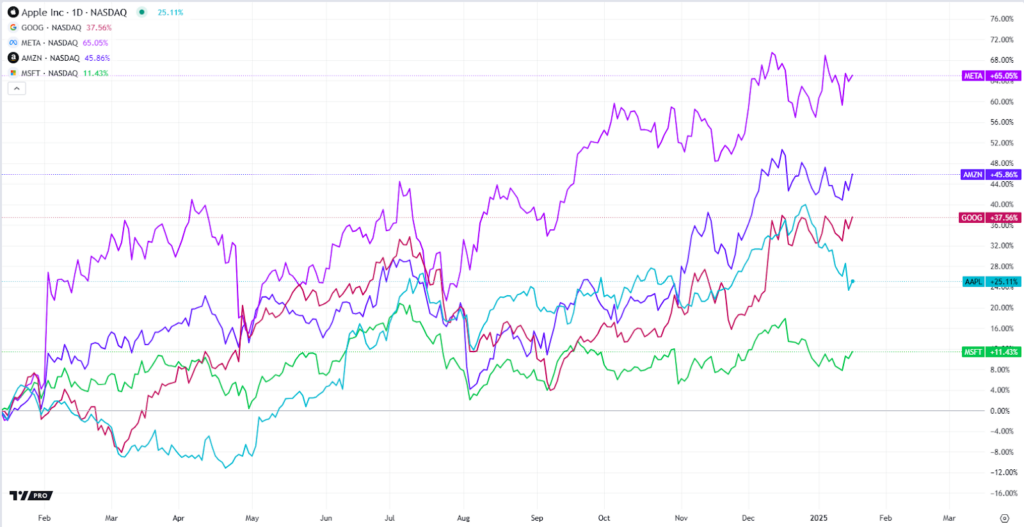In 2024, tech giants such as Apple, Google, Meta, Amazon, and Microsoft were once again facing scrutiny from authorities worldwide. Fines for anti-competitive practices, violations of user privacy, and other infractions have become routine. However, despite the apparent seriousness of the situation, these companies are swiftly recovering from the substantial financial losses.
Google was the most heavily fined last year, facing penalties totaling nearly $3 billion. Considering the company’s free cash flow allows it to cover such fines in just three weeks of operations, it’s clear that these financial penalties are a mere bump in the road for Google’s global business. Google’s free cash flow for the first three quarters of 2024 was $47.9 billion, while the total fines for the year amounted to $2.97 billion, or 16 times less.
Meta wasn’t left out either. The company was fined $1.46 billion, which it paid off in less than two weeks. Since 2022, Meta has been fined over $3.7 billion, but no one on the board of directors has called for CEO Mark Zuckerberg’s resignation. The actions that caused these fines have cost the company hundreds of billions of dollars.
In Amazon’s case, the $57 million fine seems almost trivial — the company’s revenue can cover this cost in a single day. These figures highlight that for tech giants, fines are little more than a fee to continue doing business. In fact, Amazon stock chart reflects a resilience that further underscores this reality: despite facing occasional setbacks, the company’s stock price continues to rise, indicating that investors view these fines not as a significant threat, but as just another cost of doing business.
Over the past three years, fines against major tech players have significantly increased. Formally, this is a’ response by authorities to ensure compliance with the law and maintain a fair competitive environment. However, as practice shows, such measures are often perceived not as severe punishment but as a minor inconvenience, easily ignored when considering the companies’ total income. Fines are just one part of the payments these companies face. In Ireland, Apple has $14 billion in unpaid taxes, and one of the largest class-action lawsuits against the company amounts to $3.66 billion — it takes Apple just two months to earn $17.66 billion.
Recognizing the futility of their efforts, authorities are now pushing for financial contributions and concrete actions from these companies. A prime example is Europe’s “Digital Markets Act” (DMA), which requires Apple and Google to make their ecosystems — iOS and Android — more open to third-party developers. This could significantly change the current digital services landscape. While American companies resist and propose reforms that sidestep the law’s intent, it’s unlikely these tech giantswill willingly give up their monopolies. These efforts are taking on a global dimension: an American court has declared the Google Play platform an illegal monopoly, and Google an unlawful monopolist in the search engine market. As a result, the company may eventually be forced to sell Android OS and the Chrome browser.

The current situation raises questions about the real impact of fines on the market. Are they a genuine deterrent to the giants, or simply another form of legitimization? As public opinion and regulators increasingly criticize the actions of large corporations, it will be important to watch how these changes unfold in the future.
Ultimately, the dynamic between fines and corporate behavior remains an ongoing dialogue, with both the tech world and government agencies seeking a middle ground. It will be fascinating to see how this relationship evolves and what new steps authorities will take to truly enforce laws in the technology sector.